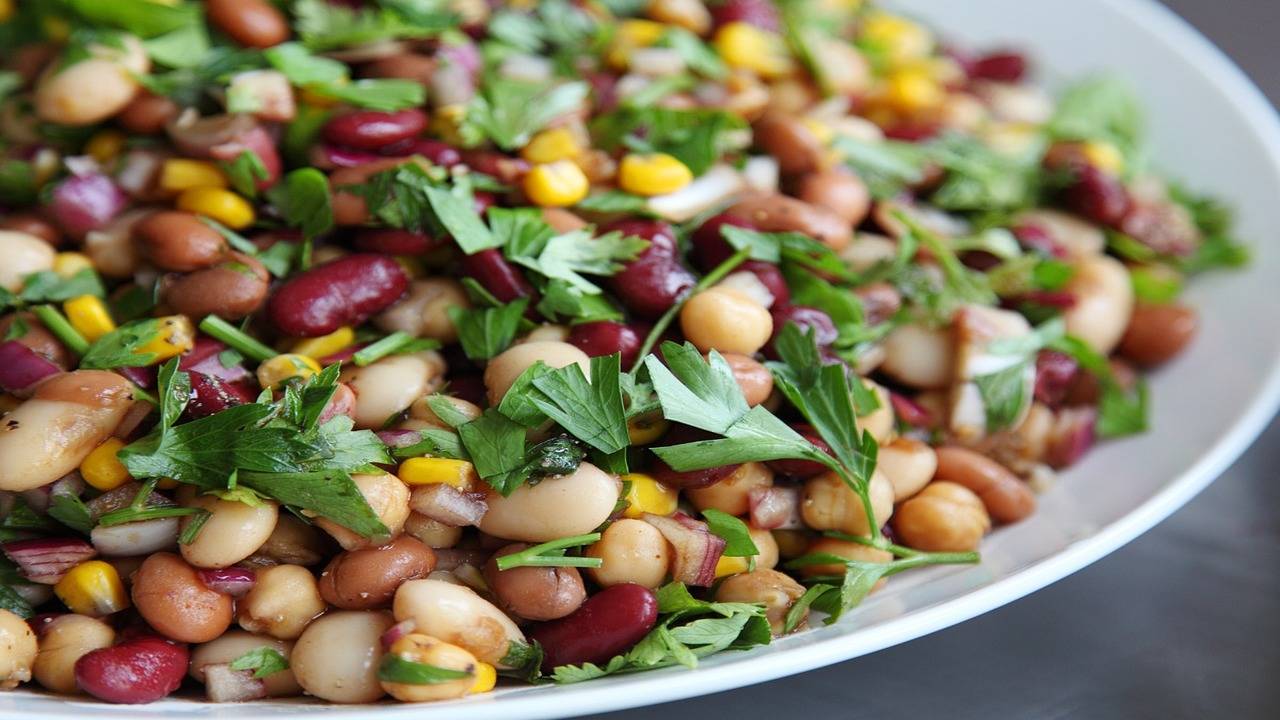In Psalm 51: 7(KJV), the psalmist has this to say: “Purge me with hyssop, and I shall be clean: wash me, and I shall be whiter than snow”. Hyssop is an herbal plant; meaning, detoxification and the use of herbs is recognized in the Biblical days. There are some herbs that have been recognized in the bible as medicinal. With my research in the bible, I chanced on top 14 biblical helps for healing for discussion.
Also in Psalm 104 : 4(KJV), the bible had this say:
14. He causeth the grass to grow for the cattle, and herb for the service of man: that he may bring forth food out of the earth;
15. And wine that maketh glad the heart of man, and oil to make his face to shine, and bread which strengtheneth man’s heart.
16. The trees of the Lord are full of sap; the cedars of Lebanon, which he hath planted;
14 Herbs of the Bible
1. Aloes – He was accompanied by Nicodemus, the man who earlier had visited Jesus at night. Nicodemus brought a mixture of myrrh and aloes, about seventy-five pounds. (John 19:39)NIV
The aloe vera plant has been used for thousands of years. In ancient times, it was used to embalm the dead, as well as for perfume. It also has a lengthy history of use topically for skin complaints (including wounds, irritations and burns) and internally for constipation.
In recent times, aloe is promoted to treat burns (including sunburns), heal rashes and moisturize the skin. According to the University of Maryland, Initial research has also shown that aloe may help to lower blood sugar in type 2 diabetics and decrease the effects of liver damage caused by alcohol.
2. Anise – “Woe to you, teachers of the law and Pharisees, you hypocrites! You give a tenth of your spices-mint, dill and cumin. But you have neglected the more important matters of the law-justice, mercy and faithfulness. You should have practiced the latter, without neglecting the former. (Matthew 23:23)NIV. Interesting enough, many are those who uses herbs including medics but would later critique herbs! This is the injustices Jesus preaches! Everyone including medics uses herbs; they are in our kitchen as spices and many others. No one is immune from herbs!
Anise Seeds are known as Nkitinkiti in Twi or Osukon in Ga. Consuming anise seeds helps improve digestion, reduces nausea, and alleviates cramps. The seeds contain thymol, terpineol, and anethole, which are good at relieving coughs.
In recent times, anise is administered to help aid digestion and can be used as an anti-flatulence agent.It’s also used with some regards for breast-feeding support and parasites. According to University of Michigan Health System (UMHS), as an antispasmodic, anise can be useful for coughs, bronchitis and COPD.
3. Balm or Balsam – And they sat down to eat bread: and they lifted up their eyes and looked, and, behold, a company of Ishmeelites came from Gilead with their camels bearing spicery and balm and myrrh, going to carry it down to Egypt. (Genesis 37:25)
Balm or balsam in the Bible refers to averyperfumedstickyingredientremoved from a plant. In Biblical times, balsam was regarded extremely valuable. The balm or balsam of Gilead in the Bible was named for the region of Gilead where it was made and this balm was used medicinally.In modern times, there are various herbal salves and oils made from this Biblical balm.
4. Bitter herbs – They shall eat the flesh that same night, roasted with fire, and they shall eat it with unleavened bread and bitter herbs. (Exodus 12:8)
Well, bitter herbs are a group term used for things like horehound, tansy, horseradish, endive, parsley and coriander seeds. In the bible days, these Bitter herbs were typically used for food. In actuality, the people of Israel were ordered to used bitter herbs with their Passover lamb.
In modern era, bitter herbs such as gentian and wormwood are useful to avert and relieve digestive issues such as dyspepsia. Specialists hypothesize that bitter herbs are useful to aid digestion using digestive secretions and blood circulation in the abdominal organs. According to 2015 study conducted by McMullen et al, recent studies indicate that bitters elicit a range of cephalic responses which alter postprandial gastric phase haemodynamics. Caffeine and regular coffee (Coffeaarabica semen, L.) increase heart rate whereas gentian (Gentianalutea radix, L.) and wormwood (Artemisia absinthiumherba L.) increase tonus in the vascular resistance vessels. Most of these bitter herbs are used for alcoholic bitters.
5. Cassia – Vedan and Javan paid for your wares from Uzal; wrought iron, cassia and sweet cane were among your merchandise. (Ezekiel 27:19)
Previously, Cassia oil was commonly used as anointing oil in Biblical days. Cassia has aromatic properties quite similar to cinnamon. In this modern era, cassia is used in natural hair care, coloring and conditioning. How it is used involves the harvesting of the leaves, dried and milled into a powder used for the hair.
6. Cinnamon – Take the following fine spices: 500 shekels of liquid myrrh, half as much of fragrant cinnamon, 250 shekels of fragrant calamus. (Exodus 30:23)
Cinnamon, once more cherished and appreciated more than gold, has some incredible therapeutic benefits. The oil is made from the bark, and was traditionally sourced for anointing oil, as well as perfume.
In modern days, cinnamon is being administered to lower blood glucose levels. The University of Michigan Health System (UMHS) says, the antifungal properties, makes it a natural treatment of yeast infections. It can also help to calm an upset stomach by relieving gas.
7. Cumin – When he has leveled the surface, does he not sow caraway and scatter cumin? Does he not plant wheat in its place, barley in its plot, and spelt in its field? (Isaiah 28:25)
The ancient Israelites took cumin seeds, dried them and used them to flavor their food. recently, research has shown that cumin seeds contain a substance called cuminaldehyde that may be useful in fighting diabetes. A study published by Khan et alin 2017 proves that black cumin contains an anticancer phytochemical known as thymoquinone and thymoquinone may be considered as a future drug in cancer treatment. Modern studies have also confirmed some of the health benefits cumin is traditionally known for, including promoting digestion and reducing food-borne infections.Research has also revealed some new benefits, such as promoting weight loss and improving blood sugar control and cholesterol.
8. Frankincense – On coming to the house, they saw the child with his mother Mary, and they bowed down and worshiped him. Then they opened their treasures and presented him with gifts of gold, frankincense and myrrh. (Matthew 2:11)
Frankincense is commonly used for incense, frankincense was used during ceremonial offerings and considered an article of luxury.In modern era, it can be used as an anti-inflammatory agent, analgesic, antidepressant, and sedative, in addition to being a powerful healing herb. Frankincense oil according to a research study conducted by Al-Yasiry and Kiczorowska is also a great stress-reducer known to improve anxiety.
9.0 Garlic – We remember the free fish we ate in Egypt, along with the cucumbers, melons, leeks, onions, and garlic. (Numbers 11:5). Garlic has been used as both food and medicine in many cultures for thousands of years, dating back to when the Egyptian pyramids were built.In recent times, garlic is used to boost the immune system and help prevent heart disease. It is known to have helpful effects on hypertension and high cholesterol. Eating garlic frequently may help guard against
10.0 Hyssop – Purge me with hyssop, and I shall be clean: wash me, and I shall be whiter than snow. (Psalm 51:7).
Hyssop is a sweet smelling plant from the mint family. It was used in many ceremonial rituals of the Israelites, as burning hyssop typically meant an inner cleansing. Hyssop has been used for centuries as an antiseptic agent; one of its common uses as an essential oil is as a medicinal plant and aromatic herb. Hyssop oil spiritual uses date back thousands of years ago. There’s even a hyssop oil Bible reference – in verse 7 of Psalm 51, it states, “Thou shalt purge me with hyssop, and I shall be clean.”
What is hyssop and what is it used for? For thousands of years, hyssop has been an herb used as a purifier and cleanser; the Romans even used hyssop because they believed it helped protect them against plagues. Its reputation as a protector has led people to hang dried hyssop at their homes in order to keep out the evil eye or negativity. It has also been left at grave sites to protect the dead.Hyssop, or Hyssopusofficinalis, is an herbaceous plant of the genus Hyssopus, and it’s native to Southern Europe, the Middle East and the region surrounding the Caspian Sea. Its name comes from the Hebrew word adobe or ezob, which literally means “holy herb.”
Today, hyssop is used for digestive and intestinal problems, including liver and gallbladder conditions, intestinal pain and loss of appetite. It’s also used for respiratory problems in various ways, such as eliminating coughs, helping to prevent the common cold and respiratory infections, soothing sore throats, and as one of the natural remedies for asthma.
A research study published in 2003 conducted by Miyazaki et aldemonstrates how hyssop may be “a useful food for hyperglycemia,” which is an abnormally high blood sugar level. These findings suggest that hyssop extracts inhibited the digestion of complex carbohydrates, but not that of absorbable monosaccharide, and might be a useful supplemental food for hyperglycemia. Also, according to University of Michigan Health System (UMHS),Hyssop is also known for being an expectorant and improving respiratory related problems such as asthma, coughs and bronchitis.
Hyssop can be found in tea and tincture form at most health stores. Warm hyssop tea or hyssop tintcure diluted in warm water can be used as a gargling liquid for sore throats.Hyssop in Akan is “Adwera. The reference to hyssop at the crucifixion (John 19:29) is puzzling, since the stem of this plant is not tough enough to bear the weight of a sponge, and it has been suggested that there was an early mistake in the Greek MSS and that the evangelist wrote ‘on a javelin’ (NEB). Yet a reference to ‘hyssop’ would carry Passover sacrificial overtones (Exod. 12:22) which John may have noted for its theological rather than historical truth
11.0 Mint – Woe unto you, scribes and Pharisees, hypocrites! for ye pay tithe of mint and anise and cummin, and have omitted the weightier matters of the law, judgment, mercy, and faith: these ought ye to have done, and not to leave the other undone. (Matthew 23:23)
Mint has been used for thousands of years as a culinary herb and for medicinal purposes.In recent times, peppermint is prescribed medicinally for its calming effects. Practitioners often prescribed to improve some common health concerns like flatulence, diarrhea, menstrual cramps, nausea and headaches. Some studies according to the University of Maryland administer peppermints to help improve indigestion and irritable bowel syndrome (IBS).
12.0 Mustard – And the Lord said, “If you had faith like a grain of mustard seed, you could say to this mulberry tree, ‘Be uprooted and planted in the sea,’ and it would obey you.” (Luke 17:6)
One of Jesus’ most famous parables was about the mustard seed. This may be because mustard grew so abundantly in Palestine.In recent times, mustard seed has been studied for its possible anti-cancer properties. Precisely, mustard seed contains a compound called allyl isothiocyanate (AITC) and animal research has shown that AITC-rich mustard seed powder “strongly inhibits bladder cancer development and progression” according to Bhattacharya et al.
13.0 Myrrh – Then their father Israel said to them, “If it must be so, then do this: take some of the best products of the land in your bags, and carry down to the man as a present, a little balm and a little honey, aromatic gum and myrrh, pistachio nuts and almonds.” (Genesis 43:11)Myrrh has many mentions in the Bible. In Biblical days, it was sold as a spice and as an ingredient of the anointing oil used in the Tabernacle, or as a lotion for the cleansing of the dead. In the Roman world, it was regarded a natural remedy for almost every human illness from earaches to hemorrhoids.
In recent times, myrrh oil is being administered for its anti-parasitic, antifungal and antibacterial benefits. interestingly, there are those who diffuse this Biblical oil into the air during prayer and meditation.
14.0 Saffron – Nard and saffron, calamus and cinnamon, with all the trees of frankincense, myrrh and aloes, along with all the finest spices. (Song of Solomon 4:14)
According to Dr. Axe, Saffron is the most expensive spice in the world today was also very dear during ancient times. Because of its distinct yellow color, saffron was used not only for flavoring but to make ancient dyes as well. Ancient peoples used saffron to treat stomach upsets, bubonic plague and smallpox.
In recent times, studies conducted by Dimitra et al 2011 among othershave indicated possible health benefits including cancer-inhibiting properties (specifically for breast cancer), antidepressant effects and promoting a feeling of fullness for mildly overweight individuals.
Take Home
Based on my biblical research on herbs, the Bible revealed many cherished herbs. They are plants that can be used as food, medicine, tea, skin care, hair care, dental care and many others. It really amazing and interesting when you think about all the natural Bible herbs we can easily get daily to improve our health. Indeed, there are many herbs in our days as well and our kitchens are laced with many spices for cooking. Hence, we all use herbs in our daily lives including the air we breadth. Without herbs, there is no human species.
In conclusion, I end my submission with when Jesus was confronted with the question of fasting. The disciples of John the Baptist and the Pharisees fasted. Jesus’ disciples did not. People asked him why. Jesus took this opportunity to speak about what it means to really change from a consciousness of living by public ritual to a consciousness of authentic spiritual life.
When asked why, Jesus made several mysterious responses, among them, “No one puts new wine into old wineskins: otherwise, the wine will burst the skins, and the wine is lost, and so are the skins: but one puts new wine into fresh wineskins” (Mark 2:22).
Fasting, of course, is not the issue that Jesus is addressing. It can be a beneficial, healthful practice, and I’m certain Jesus would have agreed. But, as a ritualistic religious practice, it belonged to the old paradigm that Jesus was trying to break through. In effect, he and his disciples were saying by their words and actions: “You can’t put new ideas into old mind-sets. You can’t get new results with old behaviors.” We can’t get new results with old behaviors.
For example, one of the most common resolutions, and one that gets broken most often, has to do with weight control. … What most of us fail to do is address permanent changes in our eating habits. Trying to put the new wine of a trimmer body into the old wineskin of established and ingrained poor eating patterns cannot bring lasting results.We can’t develop the herbal sector thinking modern naturopathic medicine is the same as the old way of doing things. utrition
DISCLAIMER This post is for enlightenment purposes only and should not be used as a replacement for professional diagnosis and treatments. Remember to always consult your healthcare provider before making any health-related decisions or for counselling, guidance and treatment about a specific medical condition.
NB: The writer is on a mission to provide you and your family with the highest quality nutrition tips, scientific herbs and healthy recipes in the world.
The writer is an honorary Professor of Holistic Medicine-Vinnytsia State Pedagogical University, Ukraine, president, Nyarkotey College of Holistic Medicine and currently, LLB law/MBA Student. He is the formulator of FDA approved Nyarkotey Hibiscus Tea for Cardiovascular Support and wellness, Men’s Formula for Prostate Health and Women’s Formula for wellness. Contact: 0241083423/0541234556
References
I. McMullen, M. K., Whitehouse, J. M., &Towell, A. (2015). Bitters: Time for a New Paradigm. Evidence-based complementary and alternative medicine :eCAM, 2015, 670504. https://doi.org/10.1155/2015/670504
II. Lee HS. Cuminaldehyde: Aldose Reductase and alpha-Glucosidase Inhibitor Derived from Cuminumcyminum L. Seeds. J Agric Food Chem. 2005 Apr 6;53(7):2446-50. doi: 10.1021/jf048451g. PMID: 15796577.
III. Asaduzzaman Khan M, Tania M, Fu S, Fu J. Thymoquinone, as an anticancer molecule: from basic research to clinical investigation. Oncotarget. 2017 Apr 18;8(31):51907-51919. doi: 10.18632/oncotarget.17206. PMID: 28881699; PMCID: PMC5584300.
IV. Asaduzzaman Khan M, Tania M, Fu S, Fu J. Thymoquinone, as an anticancer molecule: from basic research to clinical investigation. Oncotarget. 2017 Apr 18;8(31):51907-51919. doi: 10.18632/oncotarget.17206. PMID: 28881699; PMCID: PMC5584300.
V. Al-Yasiry AR, Kiczorowska B. Frankincense–therapeutic properties. PostepyHig Med Dosw (Online). 2016 Jan 4;70:380-91. doi: 10.5604/17322693.1200553. PMID: 27117114.
VI. Miyazaki H, Matsuura H, Yanagiya C, Mizutani J, Tsuji M, Ishihara C. Inhibitory effects of hyssop (Hyssopusofficinalis) extracts on intestinal alpha-glucosidase activity and postprandial hyperglycemia. J NutrSciVitaminol (Tokyo). 2003 Oct;49(5):346-9. doi: 10.3177/jnsv.49.346. PMID: 14703310.
VII. Bhattacharya A, Li Y, Wade KL, Paonessa JD, Fahey JW, Zhang Y. Allyl isothiocyanate-rich mustard seed powder inhibits bladder cancer growth and muscle invasion. Carcinogenesis. 2010 Dec;31(12):2105-10. doi: 10.1093/carcin/bgq202. Epub 2010 Oct 1. PMID: 20889681; PMCID: PMC3105588.
VIII. Dimitra G. Chryssanthi ,Petros G. Dedes , Nikos K. Karamanos , Paul Cordopatis , Fotini N. Lamari(2011) Crocetin Inhibits Invasiveness of MDA‐MB‐231 Breast Cancer Cells via Downregulation of Matrix Metalloproteinases. Planta Med 2011; 77(2): 146-151
IX. Myrrh. https://bible.knowing-jesus.com/topics/Myrrh






